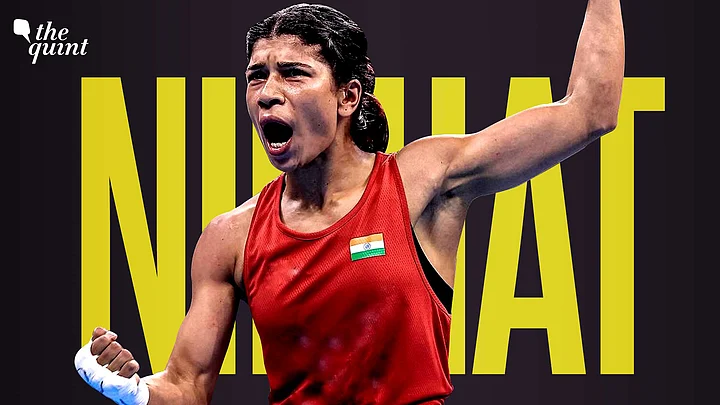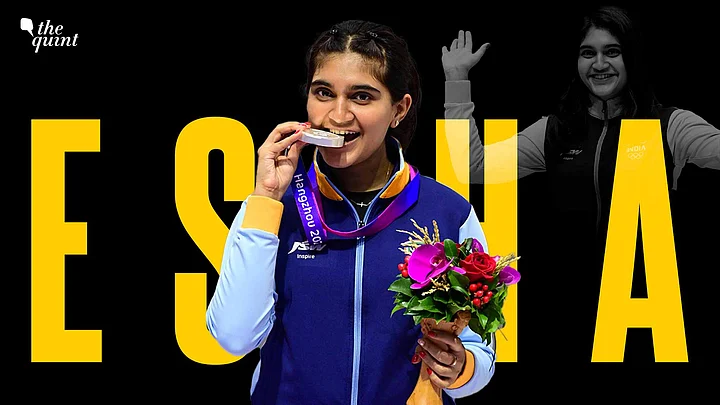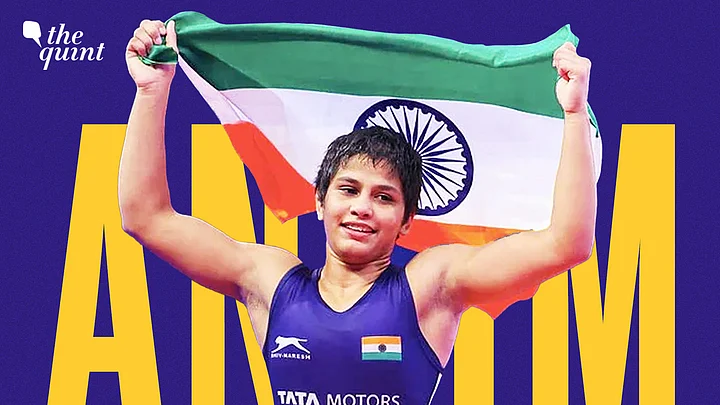Two days from now, the world’s grandest sporting event—the Olympics—will ignite in the heart of Paris, drawing athletes from every corner of the globe to this epic fiesta.
For spectators, the focus is on national pride and the quest for medals. However, the reality for athletes is far more complex. Beyond the pursuit of gold, silver, and bronze, they grapple with intense mental and physical pressures, from injuries to performance slumps, all while under the relentless gaze of a global audience.
Renowned athletes like Naomi Osaka, Simone Biles, Virat Kohli, and Ben Stokes have bravely shared their mental health struggles, inspiring others to do the same. Some have even withdrawn from prestigious tournaments to prioritise their mental health. But with the world seemingly at their feet, why do these athletes struggle?
To unravel the depth of these experiences, we caught up with Dr. Divya Jain, a sports psychologist supporting the Indian contingent at the 2024 Paris Olympics, who delves into the intricacies of athletes' mental well-being and the challenges they face.
Here are the excerpts:
Athletes have a dedicated team of coaches, trainers, and nutritionists supporting them around the clock. Given this extensive support system, what situations might an athlete benefit from consulting a psychologist, and why is this support important?
In addition to nutrition, physiotherapy, and coaching, some players work with psychologists, while others do not. We focus on both aspects: performance enhancement and personal well-being.
The Olympics is a high-stress environment with various pressures and expectations. The intense media attention and conversations around medals add to the pressure. It's crucial for players to handle this pressure effectively; otherwise, it can negatively impact their performance. Pressure can shift from being a motivating challenge to becoming a fear-inducing burden.
Helping players adjust to this new environment involves managing their daily routines to avoid overthinking and handling match and social pressures. We aim to be part of the medical team, recognizing that mental health is an integral part of overall health. We address personal stressors, mood, morale, positivity, and any issues back home to ensure comprehensive mental support.
How does the process of identifying mental health needs in athletes work? Do athletes self-diagnose and seek help, do psychologists observe and offer assistance, or is it a combination of both?
The idea is that increased awareness among players will be beneficial. The goal is for the entire team, including players, coaches, support staff, nutritionists, and physiotherapists, to work together cohesively. Everyone should understand their roles and the support needed.
At times, an athlete might seek out help when they're struggling. Alternatively, a coach or physical trainer might suggest talking to a psychologist. While we'll interact with players, mental health support must be entirely voluntary. It's essential that players feel comfortable and aware that they can reach out for support.
In today's context, how essential is the support of psychologists for athletes, especially considering the young age of many in India's contingent, many are still in their teens? How challenging is it for them to communicate their mental struggles, or even recognize them?
Mental conditioning is absolutely essential for peak performance training. Alongside technical training and physical conditioning, which includes strength, rehabilitation, and nutrition, the mental aspect is extremely important.
Success stories of athletes often highlight the significance of the mental element, as success without it is nearly impossible. Players often perform differently in practice compared to matches. In practice, they play freely and fearlessly, without concern for results or repercussions. However, in high-pressure situations, everything changes. Physiologically, players experience increased heart rate, muscle tension, and altered breathing. They may also have sleepless nights before significant events. Focus shifts to the anticipation of the outcome, which creates a different mindset.
It's crucial for athletes to approach both practice and important games with the same mindset and approach. Training players to handle pressure involves specific skills and drills, such as simulating high-pressure situations, visualisation, biofeedback, relaxation techniques, and mindfulness-based training.
For peak performance, athletes must also feel positive, healthy, and happy mentally. Any distractions or personal issues can affect motivation and performance.
Do you believe athletes worry about their public image and how discussing mental health issues might impact their career prospects?
Acceptance of sports psychology and athlete mental health is definitely increasing. The International Olympic Committee (IOC) has put significant effort into promoting athlete mental health through various initiatives, making it a key focus. The Indian Olympic Association (IOA) and the sports ministry's decision to include mental wellness as part of the medical team is a step in this direction. This move aims to make mental health support more acceptable and encourage young athletes to seek psychological support by seeing their role models do the same.
Although there is still a stigma around mental health, which is not restricted to sports or any specific geography, things are starting to change for the better.
With top athletes like Naomi Osaka, Simone Biles, Virat Kohli and Ben Stokes openly discussing their mental health challenges, has the stigma around mental health in sports diminished, and do you believe this has encouraged more athletes to speak up about their own struggles?
All of these players you've mentioned are role models. Young people observe and learn from them. When athletes like Virat Kohli or Simone Biles talk about their experiences and still achieve great success, it encourages others to open up and seek the right help. Conversations about mental health are increasing, but there is still a long way to go.
Before the Tokyo Olympics, several shooters, TT and badminton players sought counselling. As athletes prepare for the Olympics, what do you think weighs more heavily on their minds - performance pressure, their level of preparation, or the expectations of others?
When it comes to psychology and mindset, each person is unique and will have a different approach to these games. There will be a range of stressors and pressures, from different environments and weather to public expectations and scrutiny. First-time players will have different experiences compared to those who have played before, and previous experiences will impact their current mindset.
It's important for players to remain focused on their training and trust that confidence comes from their preparation. As long as they are confident in their training, they can perform well by focusing on the process and avoiding distractions. Players need to blur out the external noise and concentrate on playing their game freely and enjoying it. That's what will truly matter.
Do you think the weight of public expectations could impact an experienced athlete, too?
It can, yes. Experience is important and influences various aspects of an athlete's preparation and training. Some athletes may win gold medals one time and not succeed the next, while others consistently win medals in every edition of the games. There are many factors at play, including injuries, which have both physical and psychological impacts that need to be addressed as part of rehabilitation.
Experience, training, and mindset each have their own roles, and every intervention must be tailored to the specific athlete.
Why do even top-performing athletes sometimes struggle mentally despite their success?
There are many different stressors athletes face, especially on a stage as significant as the Olympics. For many players, the Olympics represent a dream they've trained for over a decade, making it feel like a make-or-break moment in their lives. This immense importance creates a lot of stress for both the body and mind.
When under pressure, physiological changes such as increased heart rate and altered breathing occur, and focus can shift. Athletes might start focusing on medals, media coverage, or expectations from fans, family, coaches, and teammates. The interpretation of the situation can lead to fear, triggering different behavioral patterns.
For instance, players might change their rhythm or tempo, focus on distractions like the audience or scoreboard, or get upset by an unfair call. Trying too hard can cause the body to stiffen. Athletes might struggle to sleep and overthink, worrying about past events or future consequences instead of staying in the moment. These factors can vary from player to player but can all directly impact performance.
The mind affects decision-making, focus, physiology, and muscle tension, all of which impact performance. It is essential to train the mind to handle pressure and perform optimally under it.
(At The Quint, we question everything. Play an active role in shaping our journalism by becoming a member today.)
.jpg?auto=format%2Ccompress&fmt=webp&width=720)
.jpg?auto=format%2Ccompress&fmt=webp&width=720)


